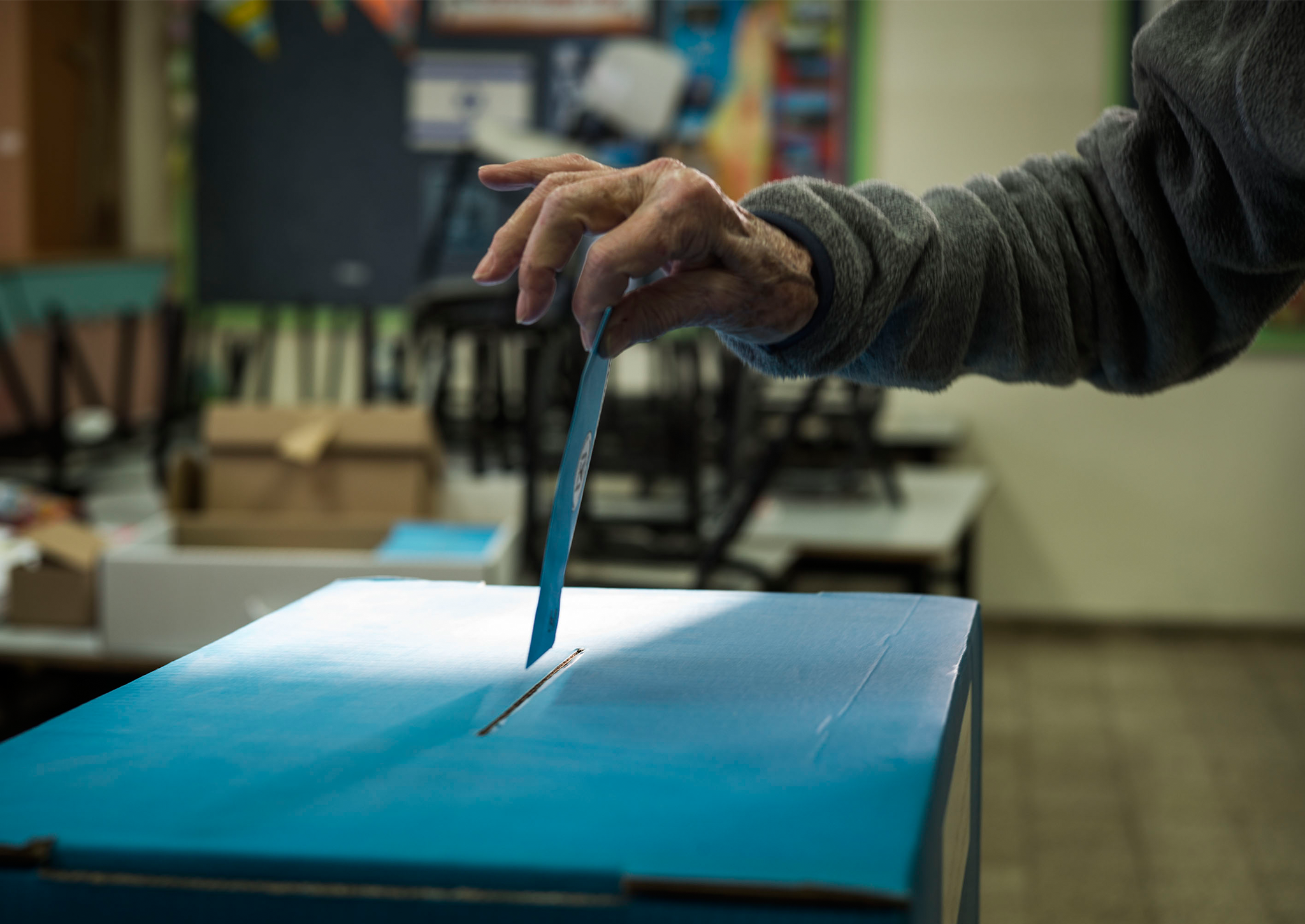Israel is supposedly the only democracy in the Middle East, yet 4.5 million Palestinians under its control can't vote
A state that ignores the rights of its indigenous non-Jewish people is not a democracy

Your support helps us to tell the story
From reproductive rights to climate change to Big Tech, The Independent is on the ground when the story is developing. Whether it's investigating the financials of Elon Musk's pro-Trump PAC or producing our latest documentary, 'The A Word', which shines a light on the American women fighting for reproductive rights, we know how important it is to parse out the facts from the messaging.
At such a critical moment in US history, we need reporters on the ground. Your donation allows us to keep sending journalists to speak to both sides of the story.
The Independent is trusted by Americans across the entire political spectrum. And unlike many other quality news outlets, we choose not to lock Americans out of our reporting and analysis with paywalls. We believe quality journalism should be available to everyone, paid for by those who can afford it.
Your support makes all the difference.Today Israeli citizens are going to vote for their next government in a country often labeled as "the only democracy in the Middle East". Ironically, they will be voting on ballot cards produced in an illegal Israeli settlement in the West Bank by Palestinians, who will have no input in the political process.
In fact, approximately 4.5m Palestinians in the West Bank and Gaza have no say in deciding which Israeli political party will control every aspect of their lives.
The Oslo Accords in the early 90’s divided the West Bank into areas A, B and C. Area A is controlled by the Palestinian Authority (PA), Area B by both the PA and the Israeli Occupation Forces (IOF) and Area C solely by the IOF.
In reality, control over the everyday lives of Palestinians in each of these areas is controlled by the IOF. And it is done brutally. Movement is rigidly controlled, access to resources is denied and Israeli military incursions into villages and towns are frequent. Palestinians see violent settler rampages on a daily basis, which often involve the burning of agricultural land and physical assaults on anyone who gets in their way.
In Gaza the situation is even worse. Even though they've elected their own government, Hamas, these Palestinian lives are quite literally at the whim of Israel and the political games it plays. The summer of 2014 saw over 2000 Palestinians in Gaza being massacred and much of the infrastructure flattened.
In order to qualify for building materials to rebuild their homes, Palestinians have to give their name, address and house coordinates to the UN under the terms of the Gaza Reconstruction Mechanism. The information is then passed to the Palestinian Authority. In theory, Israeli authorities are then given a list of names and addresses before approval is given for the supply of required materials. Inevitably, there is scepticism as to whether house co-ordinates are not passed over to Israel too, meaning that homes can be targeted with precision missiles whenever the next Israel-Palestine war breaks out.
What's more, Israel has even been accused on putting Gazans on a "diet", and of controlling the exact number of calories entering the strip between 2007 and 2010.
The 1.7m Palestinians inside Israel who are enfranchised are faced with a dilemma when it comes to voting. They are damned if they do and damned if they don’t. Although they have citizenship, it is on a nominal basis, and there is an entire body of Israeli laws designed to discriminate against them. Their situation is one of an internally colonised people and the type of occupation they face, although subtle, is very real.
There is a vocal and historic movement among Palestinian citizens of Israel that advocates for the boycott of the elections. For many of these people, to vote is to normalise apartheid and legitimize the current regime. They see boycott as an act of solidarity with their brothers and sisters in the West Bank and Gaza.
However, some believe in changing the regime and ending the occupation from within, and this year we have seen something unprecedented: a joint Arab list. This list comprises of four main Arab political parties inside Israel. It is predicted that this joint list is likely to be the third largest slate in the Israeli Parliament. Indeed, even Netanyahu seems worried that the Arabs are taking up their right to vote, and has been using it to fearmonger Israeli Jews into voting for his party.
For the Palestinian citizens of Israel the voting debate is a serious one, and despite their differing stances both camps are adamant that Israel is not a democracy. A state that exerts its control over a people by means of a decades-old illegal occupation is not a democracy. And neither is a state that declares itself only for Jews and ignores the rights of the indigenous non-Jewish people.
Israel doesn't belong to all its citizens and those under its control. It is an ethnocratic, settler colonial state that flouts international law on a daily basis by oppressing the Palestinians in varying states of occupation. And it does so with European and American complicity. The shinning beacon of democracy in the Middle East? Far from it.
This item has been amended to make clear that Gazans who wish to qualify for building materials to rebuild their homes have to give their details (including the GPS of their co-ordinates) to the UN and, in turn, the Palestinian Authority. Names and addresses are passed on to the Israeli authorities, who have the power to veto requests. GPS co-ordinates are said no longer to be handed over, although there remains scepticism as to the reality of what details are given to the Israeli authorities.
Join our commenting forum
Join thought-provoking conversations, follow other Independent readers and see their replies
Comments